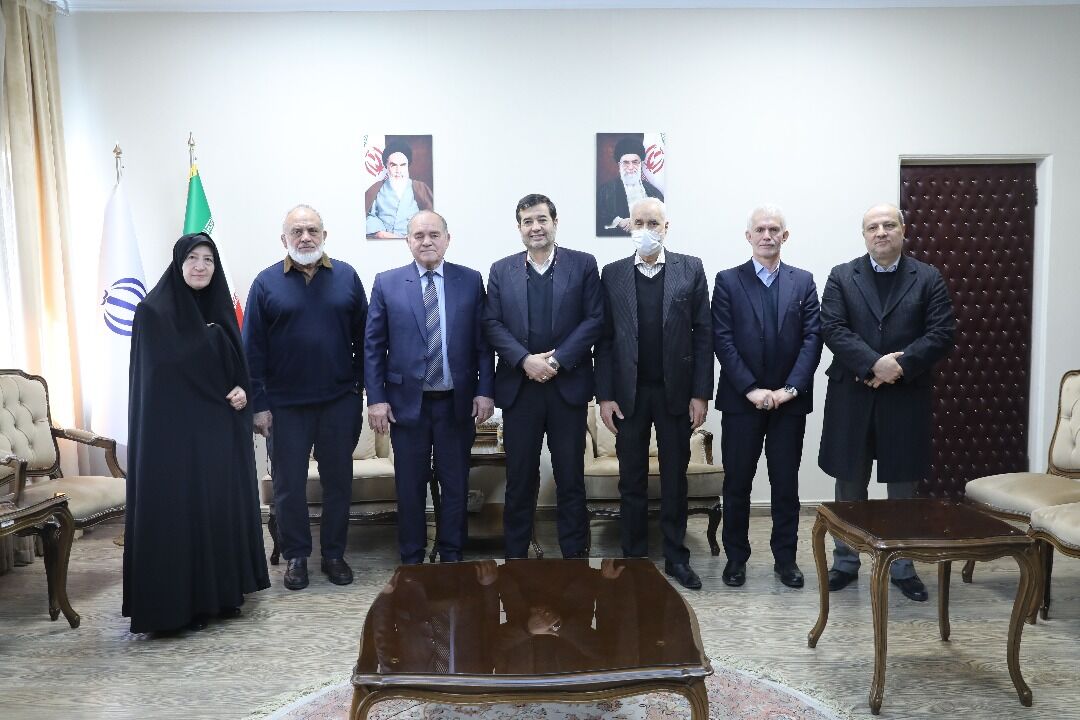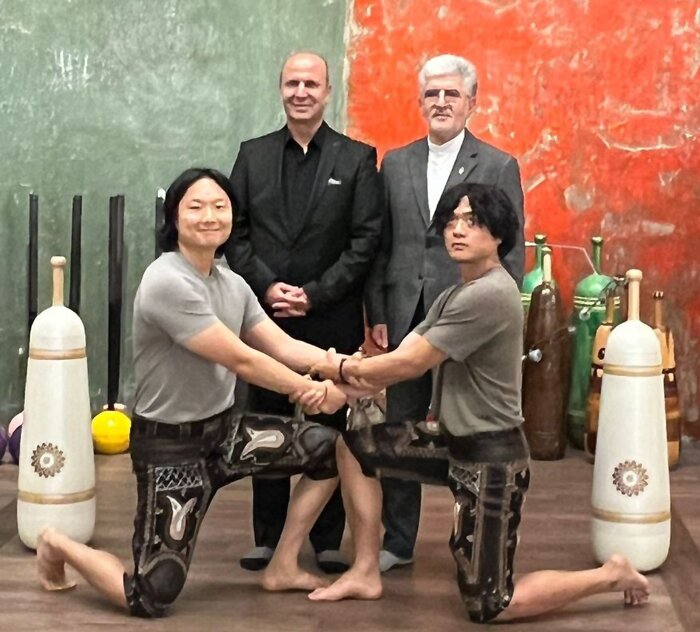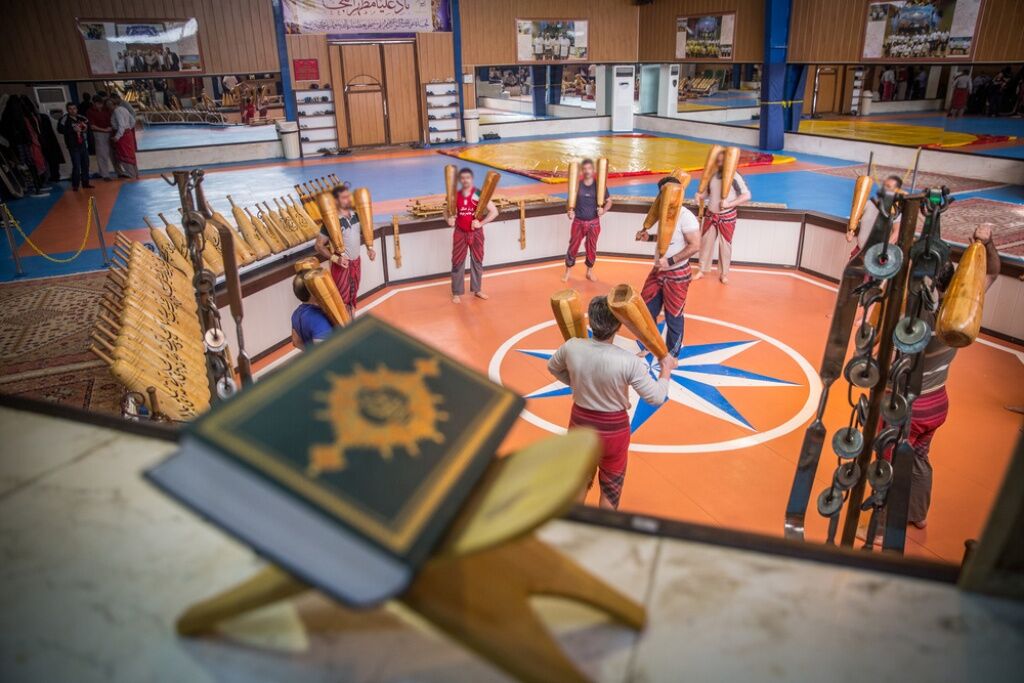The routine involves placing balls midway across the court and finding his range. He runs towards one, lifts it in the air, controls it just right and launches himself into the first overhead kick. Immediately afterwards, he runs for the second ball and produces another bicycle kick. And again, five or six more times.
Once he has finished training, there is nothing left in the tank. Out of breath, sweating and slightly dizzy, Lucas Ponzetti, a key player in an Argentina squad aiming to make history at the FIFA Beach Soccer World Cup UAE 2024 Dubai™, keeps going until the technique is honed to perfection. Lifting the ball as high as he can and making contact at the highest point possible to achieve the most powerful of strikes.
And there is enjoyment to be had in this demanding routine: flying towards the ball, spinning round, smashing it in the air and tumbling to the sand. The 24-year-old Ponzetti is a beach soccer player through and through. He learned to read the ball’s unpredictable movements on the sand from a tender age, the perfect areas to catch out goalkeepers and the ideal techniques to switch the play or get off a shot.
There are few players like him in Argentina, who have qualified for next month’s global finals in Dubai after missing out on the last three editions. The aim is to go further than ever before, with La Albiceleste haivng never progressing beyond the quarter-finals in eight previous appearances at the competition.
What impact has Argentina not taking part in recent editions of the Beach Soccer World Cup had?
Lucas Ponzetti: I was involved in the last two qualifying phases, in 2019 and 2021. I think that we performed well. We were just lacking a bit of luck. In 2019 we came very close and we might even have qualified, as Paraguay had a [guaranteed] spot as hosts and we were unfortunate to finish fourth. In 2021 our preparations were impacted by the pandemic; we couldn’t train at the Argentina FA’s facilities, and everything was an uphill struggle.
What’s changed now?
We played a lot more game during the preparation period, had a lengthy period of competitions and went into the Copa America on a good run of form. That helped boost our confidence. We were able to improve our attacking play and our defensive organisation too. We had a very good squad in 2023, that was key, as well as the competitiveness that ensured we went into the Copa with plenty of belief.
Sebastian Gomez Polatti told us the fact Argentina don’t look to gain a numerical advantage using their goalkeeper works in their favour, because it makes them less predictable. What do you think?
I agree with Seba, he doesn’t need to add using his feet to his game. He’s one of the best goalkeepers around in my opinion. In the Americas he’s among the best, if not the best. We play a 3-1 system with a lot of rotation, a lot of different interpretations. It’s not a predictable style of play. When you play a 2-2 system, while it helps you create certain movements it also makes you a bit predictable, because you’ve got two wide players and the ball is going to go to them. We play with a lot of rotation, movement and switches. Argentina are harder to analyse. A movement, some vision or anything a player invents and manages to pull off is going to catch you by surprise, however much you study us.
The issue with the 2-2 is that if you don’t carry it out well it leaves you very open, because you’re left with two players very open and two very high [up the court], so you need to be very precise. Everything needs to be perfect, there’s no margin for error. We feel comfortable defending against a 2-2 system and then hitting them on the counter. Our system really suits us and we’ve also got a player like Lucas Medero, who’s got a great shot on him and helps us punish any stray passes at the back.
What do Argentinian players have that could help give them a unique edge in Dubai?
We’re really passionate and we thrive in big games and tough situations. I don’t really know what it is, but it’s something innate. We always come through difficult times. That’s what we Argentinians have: we’re passionate and in tough moments we make it through and keep giving more.
What is it about beach soccer that you like the most?
I really like its playability – that’s what I’m most drawn to. I always talk about the level of technical ability that’s required too. You have to be really precise, your control and passing needs to be good. And then there are the overhead kicks, they’re what’s most eye-catching about this sport. I think that 11-a-side football has lost some of its spectacle in terms of individuality. It’s true that beach soccer has evolved, because it’s played more quickly now, and it’s not so static because there’s loads of rotation. But there’s still enough space to have one-on-ones or two-on-ones. To create those, you need to work very hard and that’s something which really appeals to me. You have to be very intelligent to generate those kinds of situations and be very precise and skilful too. In 11-a-side it’s more normal because the bounce of the ball is even, you don’t need to concentrate as hard on where the ball’s going but on sand you do. You need to be extremely precise and I enjoy that.
Can you tell us about the importance of bicycle kicks in beach soccer?
The bicycle kick is an asset that is well-protected. Once you get the ball in the air, opponents aren’t allowed to challenge you… the only way to defend is from 1.5 metres away, by trying to block the shot. It’s a move that’s a hallmark of this sport and care is taken to ensure that remains the case. Players who can do bicycle kicks are given protection, because once you create that situation then nobody can challenge you. With overhead kicks, once you’ve grasped the finer details, you get better and better.
How would an 11-a-side pro handle playing on sand?
It’s very difficult. Even running is different, your running technique. On sand, if you plant your foot fully down, you’ll be too slow. You have to stay on your toes as you run, to react more quickly. I grew up close to Caribe Canalla (which belongs to Rosario Central). In summer we’d play kickabouts and there’d be top-division footballers there who, on the sand, looked lost. They wanted to make the same moves [as on grass] and on sand it’s not possible. On this, when the ball stops, it’s in a dip. You’ve got to control it on the move to keep it on top of a ridge.
- نویسنده : محمدمهدی اسماعیلی رها






























Wednesday, 17 September , 2025